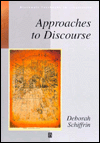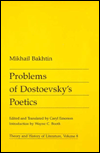Linguistics
Composition, Literacy, Editing, and Writing
Using the Passive Voice To Create Coherence
Abstract: Topical Structure Analysis of Accomplished English Prose
Thesis: Topical Structure Analysis of Accomplished English Prose
Can Research into Coherence Affect How Writing Is Taught?
Coherence and Cohesion in Text Linguistics
Diagrams and Examples of Topical Structure Analysis
Grice’s Cooperation Principle and Conversational Maxims
How to Diagram Topical Progressions
A List of Readings in the Acquisition of Writing
Motivations for News Language Style: Audience Perception or Cultural Orientation?
Proposal and Readings for a Course on Educational Linguistics: The Acquisition of Literacy
Theory and Method of Topical Structure Analysis
The Three Topical Progressions
Vachek’s Definition of Written Language
Vachek’s Functionalist Approach to Written Language
Vachek on the Correspondence of Phonemes and Graphemes
Identifying and Resolving Ambiguity in Writing and Headlines
Semantics
Identifying and Resolving Ambiguity
Philosophy of Language Questions and Answers. The argument from “Two Dogmas” supplies the “missing” argument in the case for the inderminancy of translation. The argument plays a role in the indeterminacy thesis because Quine’s reason for thinking that independent controls do not exist in translation takes its force from the argument that there are no linguistically neutral meanings. The absence of linguistically neutral meanings is a prerequiste for the indeterminacy of translation. Read more …
Pragmatic Accounts of Communication
Difficulties in Freeing Semantics from Pragmatics
Carnap’s Intensionalist Approach
Donnellan: “Necessity and Criteria”
Difficulties in Freeing Semantics from Pragmatics
Computational Linguistics
Identifying and Resolving Ambiguity
Parsing Strategies: Notes on Abney and Johnson
Abstract: Abney’s Memory Requirements and Lexical Ambiguities of Parsing Strategies
Abstract: Marcus’s Computational Account of Some Constraints on Language
Abstract: Earley’s Efficient Context-Free Parsing Algorithm
Sociolinguistics
National and Official Languages, a Distinction
Syntax
Parsing Strategies: Notes on Abney and Johnson
Government and Binding Theory Basics
Theoretical Linguistics
Facts
Are Getting the Best of Me!. “It seems clear that knowledge of
grammatical rules is an essential component of the interactive
competence that speakers must have to interact and cooperate with
others. Thus if we can show that individuals interacting through
linguistic signs are effective in cooperating with others in the conduct
of their affairs, we have prima facie evidence for the existince of
shared grammatical structure. One need not as the nineteenth-century
normative grammarians did, and many modern educators continue to do,
attempt to judge an individual’s basic linguistic ability in reference
to an a priori set of grammatical standards.” – Gumperz,
 [Discourse Strategies,
p. 19. Read more …
[Discourse Strategies,
p. 19. Read more …
Hermogenes Was Right, Socrates Wrong. In Harris and Taylor’s chapter on Plato’s “Cratylus” in Landmarks in Linguistic Thought, Cratylus takes the position that the form and meaning of a word are inextricably related. For Cratylus, “everything,” including Hermogenes, “has a right name of its own, which comes by nature” even though some people, like Hermogenes, are named incorrectly (Cratylus 383, as quoted in Harris and Taylor, p. 1). Read more …
Insightful Remarks on Linguistics
Discourse Analysis
Interpretation and Indeterminancy.
 Throughout the essay,
I will argue a hard line: the exact meaning of a speaker’s utterance in
a contextualized exchange is often indeterminate. Within the context of
the analysis of the teacher-pupil exchange, I will argue for the
superiority of interactional linguistics over speech act theory because
it reduces the indeterminacy and yields a more principled
interpretation, especially when the interactional approach is
complemented by elements from other sociologically influenced methods,
namely the ethnography of communication and Labovian sociolinguistics.
Read more …
Throughout the essay,
I will argue a hard line: the exact meaning of a speaker’s utterance in
a contextualized exchange is often indeterminate. Within the context of
the analysis of the teacher-pupil exchange, I will argue for the
superiority of interactional linguistics over speech act theory because
it reduces the indeterminacy and yields a more principled
interpretation, especially when the interactional approach is
complemented by elements from other sociologically influenced methods,
namely the ethnography of communication and Labovian sociolinguistics.
Read more …
A
Wittgensteinian Approach to Discourse Analysis. This essay seeks to
take Wittgenstein’s influence on discourse analysis a step further by
using his writings as the theoretical foundation for an approach to
analyzing discourse that is distinct from speech act theory,

 which stems from the
analytic tradition in philosophy, and to suggest that a
Wittgenstein-inspired approach may actually be closer in spirit and
content to that of an unlikely candidate whose views, in contrast to the
analytic school, harbor a distinctly Continental flavor which has come
to influence critical theory: Mikhail Bakhtin. Read more …
which stems from the
analytic tradition in philosophy, and to suggest that a
Wittgenstein-inspired approach may actually be closer in spirit and
content to that of an unlikely candidate whose views, in contrast to the
analytic school, harbor a distinctly Continental flavor which has come
to influence critical theory: Mikhail Bakhtin. Read more …
Indoctrination and Resistance in Psychotherapeutic Dialogue
The Construction of the Double as Social Object.
Ethnomethodology: Core Principles,
Concepts, Views. Ethnomethodology is “the study of common social
knowledge, in particular as it concerns the understanding of others and
the varieties of circumstance in which it can take place.” – Simon
Blackburn,  [The
Oxford Dictionary of Philosophy, p. 126. Read more …
[The
Oxford Dictionary of Philosophy, p. 126. Read more …
Motivations for News Language Style: Audience Perception or Cultural Orientation?
Proposal and Readings for a Course on Educational Linguistics: The Acquisition of Literacy
For more on discourse analysis, see the discourse analysis menu.
Old News
Linguistics and Cognitive Psychology in the Media (old)